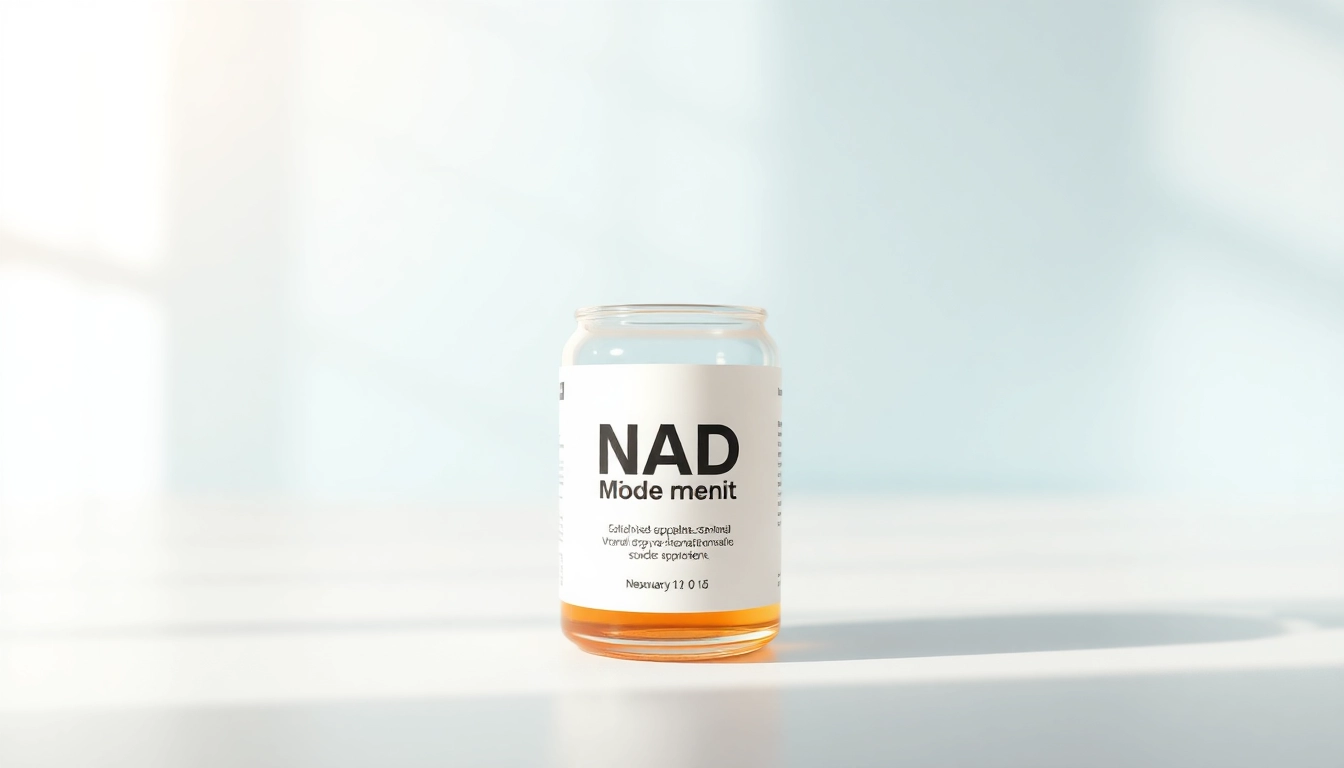Understanding NAD Supplement: What You Need to Know
What is NAD and its Role in the Body?
Nicotinamide adenine dinucleotide (NAD) is a crucial coenzyme found in every cell of the body, playing a vital role in energy metabolism and cellular repair. As an essential compound, NAD is involved in various biochemical reactions, including the conversion of food into energy through oxidation-reduction reactions. It acts as an electron carrier in metabolic pathways and is critical for the proper functioning of mitochondria, often referred to as the powerhouse of the cell. With age, the levels of NAD in our body tend to decrease, which implicates a range of age-associated health issues. This decline has sparked interest in NAD supplements as a potential means to enhance energy levels, improve metabolic health, and even promote longevity.
Benefits of NAD Supplement for Health and Vitality
NAD supplementation is touted for a range of health benefits that extend beyond mere energy enhancement. Research suggests that adequate levels of NAD may support:
- Increased Energy Levels: By facilitating ATP production, NAD supplements may significantly boost energy metabolism, combat fatigue, and improve overall vitality.
- Cognitive Function: Some studies imply that NAD may enhance brain function and reduce symptoms of cognitive decline, potentially aiding in the prevention of Alzheimer’s disease and age-related memory loss.
- Cellular Repair and Regeneration: NAD is crucial for activating sirtuins, proteins that promote cellular repair and longevity. This can lead to healthier aging and improved cell turnover.
- Metabolic Health: NAD supplements may contribute to improved metabolism and better regulation of blood sugar levels, which can be beneficial for those at risk of diabetes.
- Reduced Inflammation: NAD has been linked to decreased inflammation, supporting better immune function and recovery from various health conditions.
Common Misconceptions About NAD Supplements
Despite the growing popularity of NAD supplements, several misconceptions persist. One common myth is that NAD supplements are a cure-all. While they offer numerous benefits, they should not replace a balanced diet and healthy lifestyle. Additionally, the term “supplement” may lead some to believe that it is akin to a vitamin or mineral; however, NAD is a coenzyme and its supplementation requires a nuanced understanding of individual needs and health conditions. Furthermore, some people assume that just consuming NAD will directly translate to increased NAD levels in the body. In reality, the bioavailability and absorption of NAD supplements can vary widely among individuals.
Choosing the Right NAD Supplement for Your Needs
Types of NAD Supplements Available
The market for NAD supplements is diverse, featuring various forms, including:
- Nicotinamide Mononucleotide (NMN): NMN is considered one of the most effective precursors to NAD, and recent studies suggest its ability to enhance NAD levels and improve metabolic health.
- Nicotinamide Riboside (NR): NR is another well-studied NAD precursor that shows promise in increasing cellular NAD levels. It is available in several formats, including capsules and powders.
- NAD+ Injections: These are usually administered by healthcare professionals and may offer immediate boosts to NAD levels but come at a higher cost.
How to Read Labels and Ingredients
When selecting a NAD supplement, understanding how to read supplement labels is crucial. Start by checking the active ingredients, ensuring that products contain either NMN or NR, as these ingredients are scientifically supported for their effectiveness in raising NAD levels. Look for third-party testing certifications to validate product quality. Additionally, be cautious of proprietary blends that may obscure the actual dosage of the active ingredients. Clarity and transparency in the label can be a good indicator of a reputable product.
Recommended Dosages and Administration
The recommended dosage for NAD supplements can vary based on the specific product and individual health needs, but general guidelines suggest:
- For NMN: Typical doses range from 250 mg to 500 mg per day.
- For NR: Recommended doses fall between 100 mg and 300 mg per day.
As with any supplement, it’s essential to start at a lower dosage to assess tolerance before increasing. Taking NAD supplements in the morning may be ideal to harness energy-boosting benefits throughout the day.
Best Practices for Incorporating NAD Supplements into Your Routine
Timing Your NAD Supplement Intake
Timing can impact the effectiveness of NAD supplements. Consider taking these supplements in the morning, ideally on an empty stomach, to maximize absorption. Some individuals may notice improved energy and alertness after morning intake, making it easier to incorporate into daily routines.
NAD Supplement Synergy with Other Nutrients
NAD supplements can work synergistically with other nutrients, enhancing their overall effects. For example, B vitamins, particularly B3 (niacin), are vital for NAD metabolism and may help in its conversion. Combining NAD supplements with antioxidants can further support cellular health, combating oxidative stress. Consuming them alongside a balanced diet rich in whole foods can optimize their benefits.
Monitoring Your Body’s Response
Tracking how your body responds to NAD supplementation is essential for understanding its impact. Keep a journal documenting energy levels, mental clarity, sleep quality, and any side effects. This feedback can help tailor dosages and timing while providing insights for discussions with healthcare providers if needed.
Potential Side Effects and Considerations
Who Should Avoid NAD Supplements?
While NAD supplements are generally considered safe for most individuals, certain populations should exercise caution. Individuals with specific health conditions, such as those with liver disorders or who are pregnant or breastfeeding, should avoid NAD supplementation, as the long-term effects are not fully understood in these groups. Always consult a healthcare professional before starting any new supplement regimen.
Understanding Possible Side Effects
Though generally well-tolerated, NAD supplements can cause side effects in some individuals. Common side effects may include:
- Digestive upset (nausea or diarrhea)
- Headaches
- Flushing or mild skin reactions
If any adverse reactions occur, it’s critical to discontinue use and consult a healthcare professional.
Consulting Healthcare Professionals: When and Why
Consulting with healthcare professionals before starting NAD supplementation is a proactive step toward personalized health management. They can provide insights based on your medical history, comprehensively review any medications you’re currently taking, and help identify if NAD supplements are appropriate for your specific wellness goals.
Conclusion: Making Informed Choices About NAD Supplement
Summarizing the Key Benefits
NAD supplements present a promising avenue for enhancing health and vitality through their roles in energy production, cellular repair, and metabolic health. However, understanding their mechanisms, potential benefits, and nuances surrounding their use is critical for making informed choices.
Evaluating Your Wellness Goals
Before incorporating NAD supplements into your routine, consider your personal wellness goals. Are you looking to boost energy, support cognitive function, or improve overall health? Assessing your primary objectives can help guide your selection and use of NAD supplements.
Resources for Further Information
For those interested in exploring the topic of NAD supplements in greater depth, numerous reputable sources and studies are available online. Engaging with scientific literature as well as consulting with healthcare professionals can support a well-informed approach to supplementation. For additional insights into NAD supplements, visit NAD Supplement resources.



